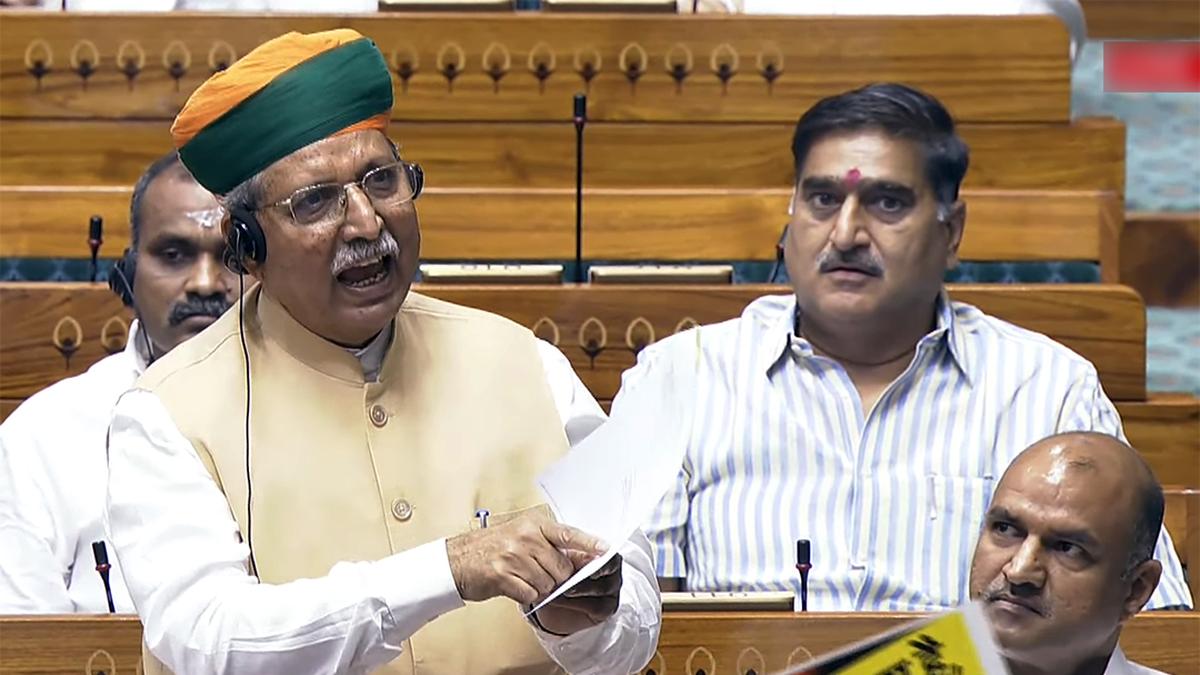Now Reading: Govt. Maintains Silence on Judicial Misconduct Reforms
-
01
Govt. Maintains Silence on Judicial Misconduct Reforms
Govt. Maintains Silence on Judicial Misconduct Reforms

Quick Summary:
- The government is seeking the removal of Allahabad High Court judge Justice Yashwant Varma after burnt currency notes were allegedly found at his official residence in Delhi in March.
- Union Law Minister Arjun Ram Meghwal spoke in Parliament during the Monsoon Session but did not specify the government’s stance on Supreme Court reforms related to addressing judicial misconduct.
- Meghwal outlined Articles 124(4) and 217(1)(b) of the Constitution, describing procedures for removing Supreme Court and High Court judges but avoided commenting on whether reforms or consultations with experts were being considered.
- Opposition parties have raised concerns about judicial accountability, citing instances like statements made by another Allahabad HC Judge, Justice Shekhar yadav, that stirred controversy last December regarding Uniform Civil Code debates at a public event.
- CPI(M) MP John Brittas emphasized maintaining judicial integrity and openness while expressing support for Justice Varma’s removal during ongoing parliamentary discussions.
Indian Opinion Analysis:
The discussion surrounding Justice Yashwant Varma’s alleged misconduct highlights an urgent need to address issues of integrity within India’s judiciary system, especially methods to ensure accountability without compromising independence. Minister Arjun Ram Meghwal’s reluctance to comment on potential reforms or consultations signals a gap between constitutional procedures for judge removal and evolving public demands for transparency in judicial conduct oversight.
While Articles 124(4) and 217 provide detailed procedural frameworks ensuring high thresholds for judge removals-likely intended as safeguards against undue interference-criticism from Opposition parties suggests dissatisfaction with handling recent cases involving alleged bias or misconduct among judges. Calls for reform underscore broader expectations from citizens regarding impartiality and ethical standards within judiciary ranks.
For India, balancing respect for institutional autonomy while exploring pathways toward improved judicial accountability could be critically important both legally and politically as growing scrutiny draws attention nationally. Parliamentary debates reflect that these are foundational issues warranting careful deliberation moving forward.
Read more: link.

























